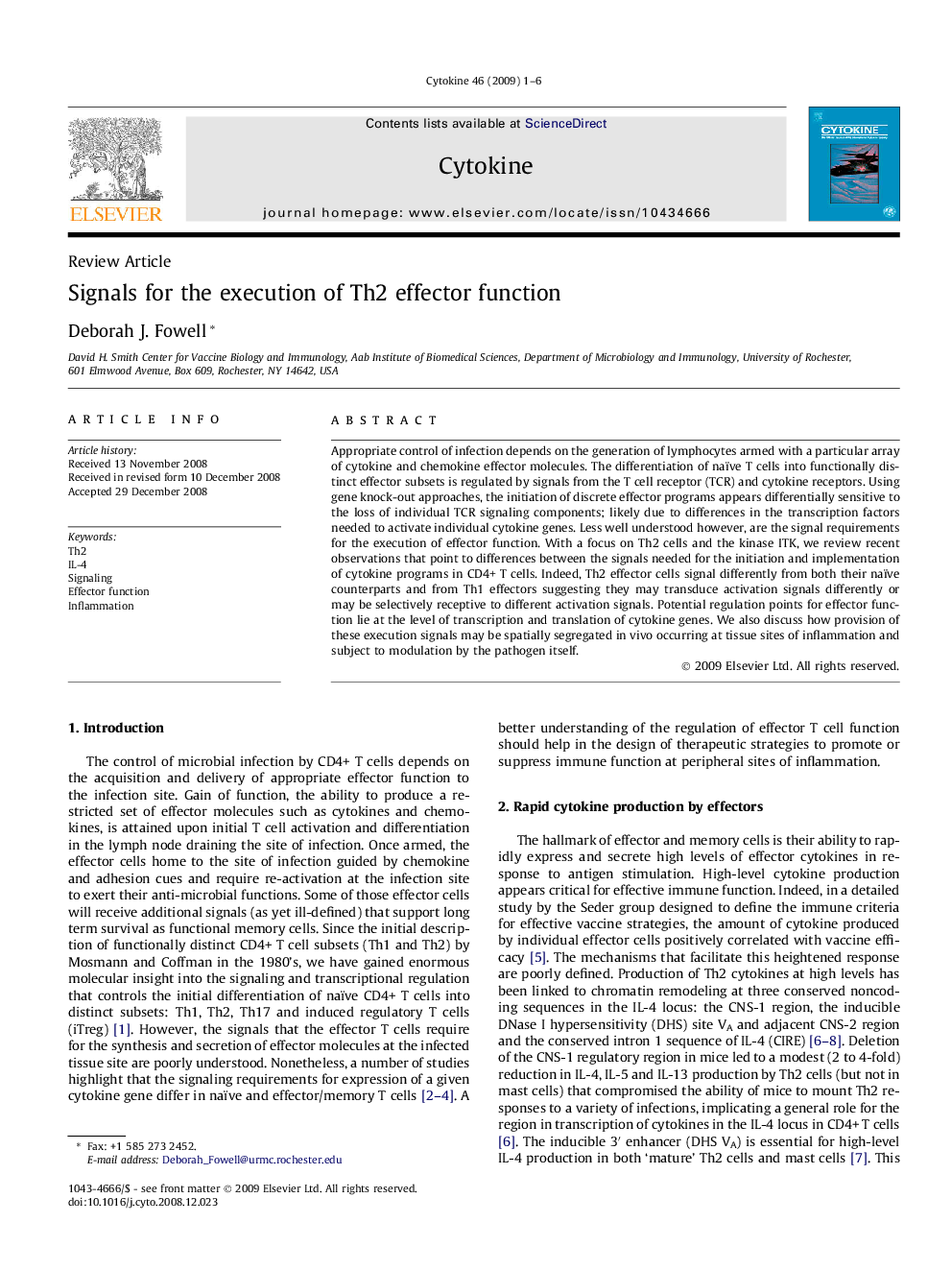| Article ID | Journal | Published Year | Pages | File Type |
|---|---|---|---|---|
| 2795090 | Cytokine | 2009 | 6 Pages |
Appropriate control of infection depends on the generation of lymphocytes armed with a particular array of cytokine and chemokine effector molecules. The differentiation of naïve T cells into functionally distinct effector subsets is regulated by signals from the T cell receptor (TCR) and cytokine receptors. Using gene knock-out approaches, the initiation of discrete effector programs appears differentially sensitive to the loss of individual TCR signaling components; likely due to differences in the transcription factors needed to activate individual cytokine genes. Less well understood however, are the signal requirements for the execution of effector function. With a focus on Th2 cells and the kinase ITK, we review recent observations that point to differences between the signals needed for the initiation and implementation of cytokine programs in CD4+ T cells. Indeed, Th2 effector cells signal differently from both their naïve counterparts and from Th1 effectors suggesting they may transduce activation signals differently or may be selectively receptive to different activation signals. Potential regulation points for effector function lie at the level of transcription and translation of cytokine genes. We also discuss how provision of these execution signals may be spatially segregated in vivo occurring at tissue sites of inflammation and subject to modulation by the pathogen itself.
